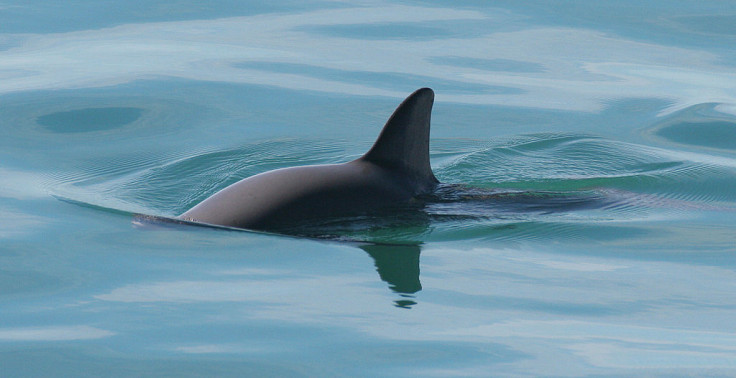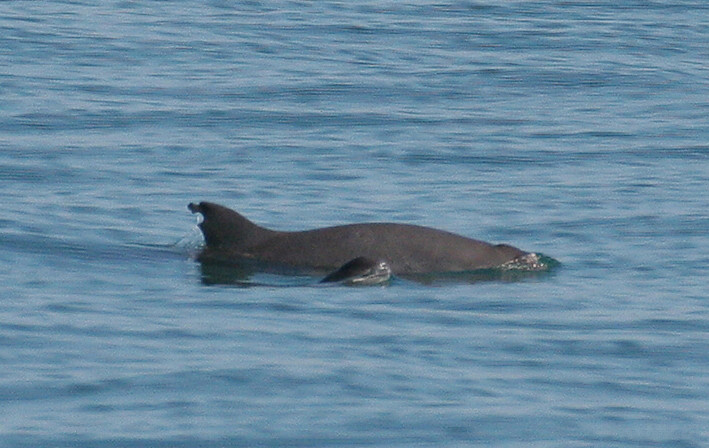Vaquita porpoises on the brink of extinction with only 60 animals left
Totoabas are considered traditional seafood in China and Hong Kong, in the same vein as shark fin.

Mexican vaquita porpoises – the world's most endangered cetacean and one of the most endangered species – are now on the brink of extinction. A new report presented this week to Mexico's Ministry of Environment suggests only about 60 animals survive today.
The porpoises are found in the Gulf of California. Each year, many of them accidentally get trapped in fishing gill nets and drown. More die each year in these fishing nets than are being born.
The gillnets are generally put up to illegally catch an endangered fish, the totoaba. Swim bladders from these fishes – known as "maw" – sell for around $8,500 (£6,000) per kilogram in Hong Kong and China.
Totoabas are considered as traditional seafood in China and Hong Kong, in the same vein as shark fin, sea cucumber or abalone. They are thought to bring many health benefits, although no scientific study corroborates this. Vaquita porpoises are therefore the collateral victims of this illegal fishing business.

Ban on gill net
The recent survey – conducted by the International Committee for the Recovery of the Vaquita (CIRVA) – confirmed results from previous acoustic monitoring, which showed a catastrophic decline of vaquitas in the past decades due to gill nets.
Between 1997 and 2008, scientists estimated that population numbers have gone down from around 570 to 250 individuals. With the number of vaquita porpoises now well below the 100 mark, the survey points out the population has declined by 92% in 20 years.
"We are watching this precious native species disappear before our eyes," said Lorenzo Rojas-Bracho, chair of CIRVA, and co-chief scientist of the report. "Our latest survey confirms the catastrophic decline before the emergency gill net ban. This gill net ban and strong enforcement must continue if we are to have any hope of saving the vaquita."

Faced with this dire situation, the Mexican government has not remained impassive. From May 2015, President Enrique Peña Nieto has imposed an emergency two-year ban on gill nets.
The Mexican Navy has been given the responsibility of enforcing it. Alongside the Agency of Environmental Protection and federal police, the navy also combats illegal fishing of totoaba in the protected areas where vaquita porpoises live, as well as poaching of protected marine species.
Additionally, to gain public support, the government has financially compensated local fishing communities for lost income.
Hopes of recovery
The authors of the recent report are concerned that if no further measures are taken and if the two-year ban on gill nets does not become permanent, vaquita porpoises could be driven to extinction within five years.
The CIRVA scientists also recommend investigating other options such as examining the feasibility of live capture and of providing the animals with a temporary safe haven.

There are hopes however that the situation can be overturned. If the ban on gill nets is implemented indefinitely, the scientists are confident the species could make a full recovery.
© Copyright IBTimes 2025. All rights reserved.






















